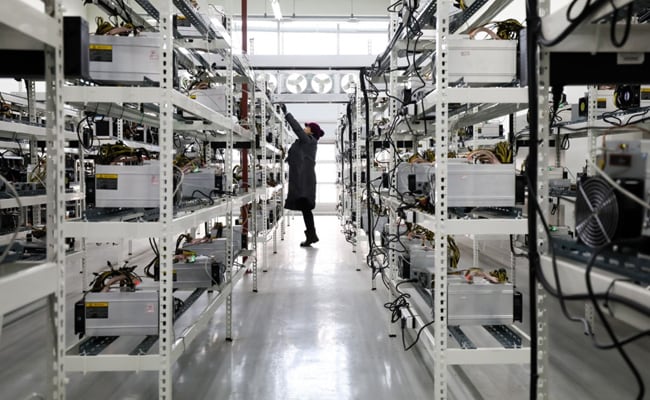They had a big problem: Just weeks earlier, the Chinese government banned cryptocurrency mining over concerns about illicit coal mining and underlying financial risks.
The miners sat in rows of white chairs in a hall at the Gran Melia Chengdu Hotel and listened intently to the executives at Bitmain Technologies, the world’s largest mining-equipment maker.
Bitmain’s employees were offering to serve as matchmakers, hooking miners up with data centers in the U.S., Central Asia and Europe.
Alex, a Chinese miner who didn’t want his last name published for fear of government retribution, was out singing karaoke with some of his fellow miners when he called to check in on his machines in the mountains outside Chengdu.
The Chinese miners forced to leave behind the country’s cheap electricity from abundant coal and roaring rivers have found themselves thrust into a wild and extreme world of crypto power-hunting.
Electricity accounts for about 80 per cent of a miner’s operating cost, according to Tyler Page, the chief executive officer of Cipher Mining Technologies Inc.
The miners who complete the calculations are rewarded with new Bitcoin, which has ranged in value from a peak of almost $65,000 before China outlawed mining to about $33,500 today.
The country is also cool enough that the data centers don’t require any air conditioning to keep them from overheating, which can add as much as 30 per cent more power consumption.
At the end of last year, the company built its biggest site yet, a 180-megawatt data center on 37 acres of land near the northeastern town of Ekibastuz.
Enegix’s clients will soon be shipping about 10,000 mining machines, a mix of Bitmain’s S19Pro and the Whatsminer M21S model from Chinese manufacturer MicroBT, to Kazakhstan by plane.
But there is a limit to Kazakhstan’s potential: Its electric grid has added only a little over 3 gigawatts of capacity in the last 20 years, according to data from BloombergNEF.
Earlier this year, tens of thousands of mining machines consumed about 45 million kilowatt-hours of power per month in an area of western China that depends on coal-burning power plants, the official Xinhua News Agency reported.
An alliance of companies launched the Crypto Climate Accord earlier this year to address criticisms and vowed to help the industry shift to 100% renewable power consumption.
The percentage of energy from renewable sources would need to increase to about two thirds of supply by 2050, up from around 12% in 2020, to keep temperatures from rising more than 1.5 degrees Celsius from pre-industrial levels, according to the International Energy Agency.
Renewable energy sources like wind and sunshine may be abundant at times, but demand for them is set to surge as cars, home heating and heavy industries increasingly shift to electricity.
“There’s a more noble use of renewable power than Bitcoin mining,” said Peter Wall, chief executive officer of London-listed mining company Argo Blockchain Plc.
Bit Digital Inc., a Nasdaq-listed mining company, began moving some of the 30,000 machines it operated in China to North America back in October.
arm of Netherlands-based Bitfury Holding BV, is working to build up mining capacity in Texas, the only state with a deregulated power grid, and Ohio because of the state’s cheap power prices and low-carbon power sources.
The physical attributes of a site matter too: extreme temperatures in either direction are a negative, as is an overly dry and gritty environment.
Some of Bit Digital’s mining rigs were shipped to a data center in Kearney, Nebraska, where the company already has about 5,000 machines noisily mining Bitcoin.
The machines were piled to the ceiling on wooden pallets, waiting for an opening so they could be put to work.
The president of El Salvador announced last month that his country would be the first to adopt Bitcoin as legal tender and directed the state-run geothermal electric company to come up with a plan for volcano-powered Bitcoin mining.
“The question is naturally going to arise about stability,” Mr Bullett said, especially with a capital-intensive industry like mining.
Ever since news of the beginning of the crackdown in China first broke in late May, Tim Kelly, chief executive officer of BitOoda has barely slept.
While China’s restrictions strangled the Bitcoin mining industry for now, the pain will only be temporary.
By May of this year, the company built up a pipeline of under 500 megawatts of grid connections for Bitcoin miners looking to plug into American power.
Mr Kelly’s clients need not only power supply, but also substations and transformers, devices that filter the high powered volts in the power grid to be gentle enough that they won’t fry all those valuable computers.
For many, that means trying to connect to renewable power sources, which the Biden administration has signaled are the future of the American electric grid.
